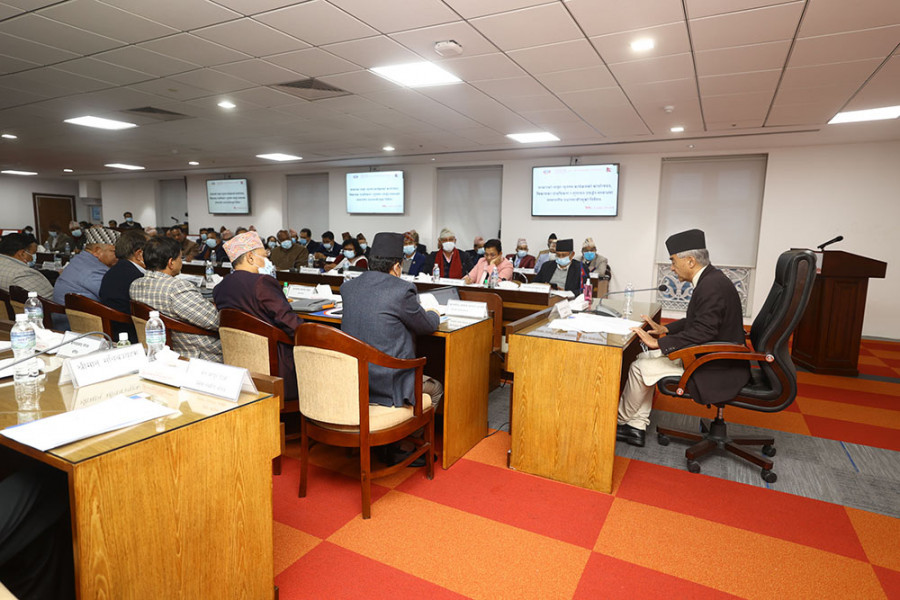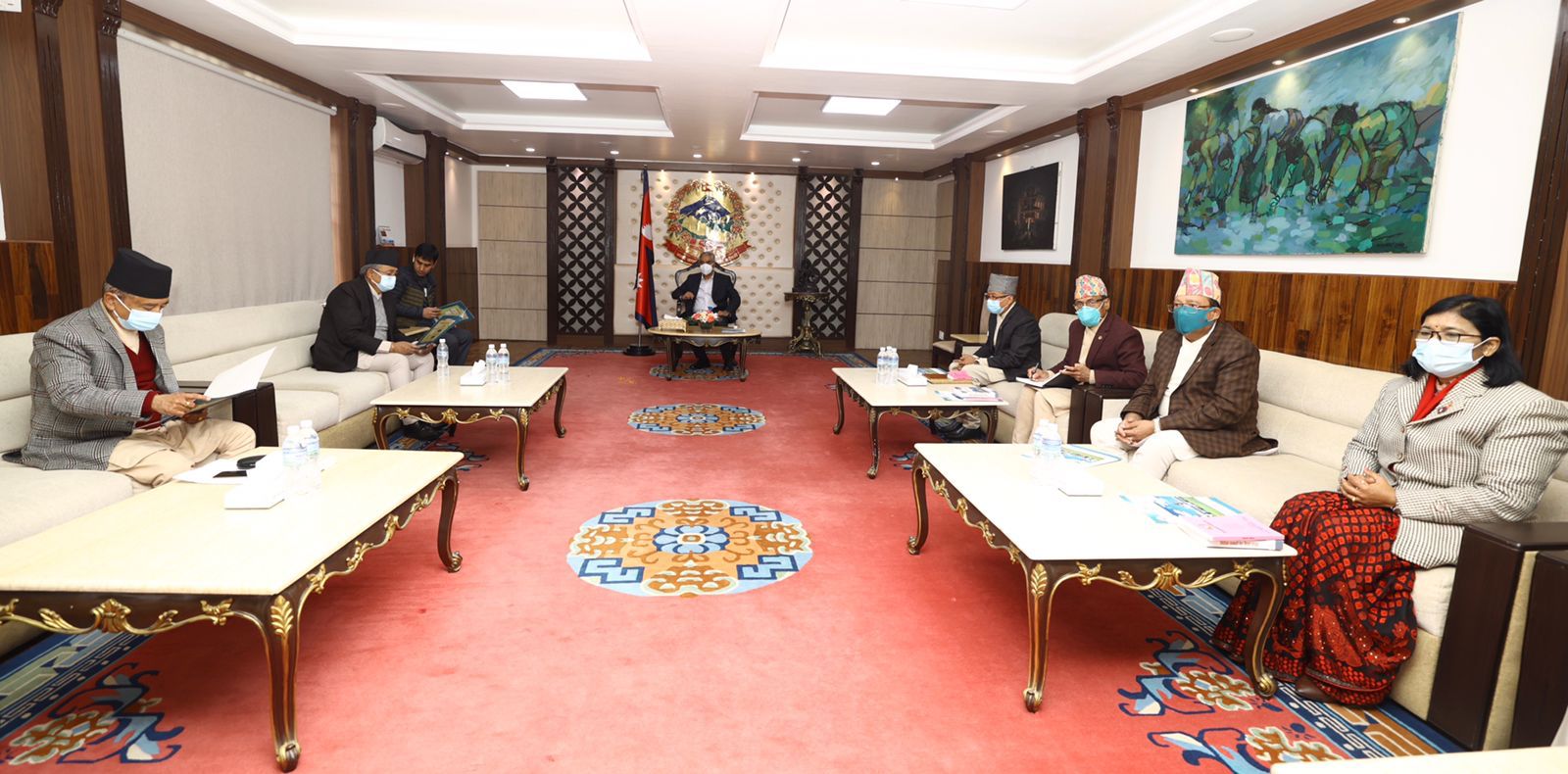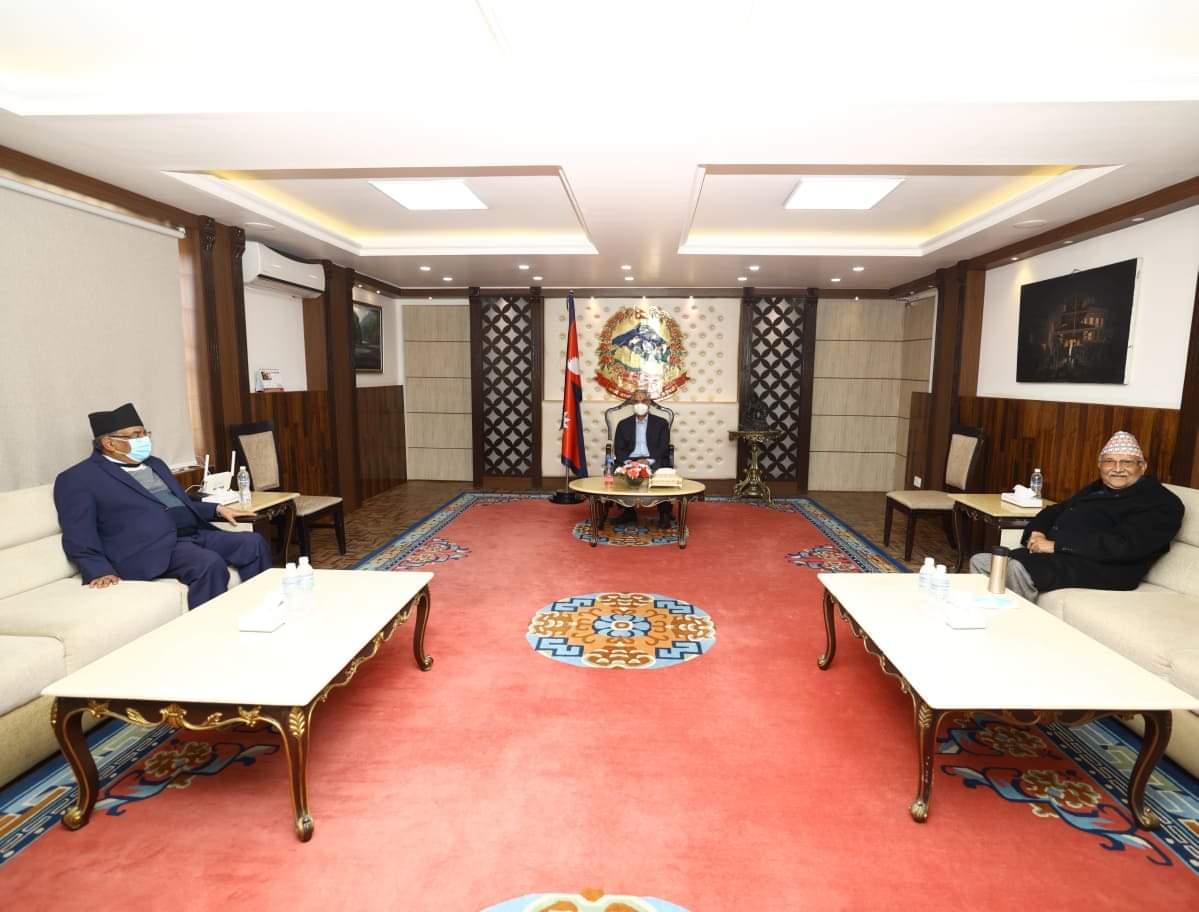Politics
Government decides to hold local level polls on May 13
Those elected from second and third phases of polls in 2017 say they would challenge the move in the court.
Tika R Pradhan
The government on Monday announced local level elections for May 13 in a single phase.
A minister said the local level poll date was announced in consultation with the Election Commission.
“Today’s Cabinet meeting decided to hold the local level polls on May 13 in a single phase throughout the country,” said Gyanendra Bahadur Karki, communications minister and government spokesperson, after the meeting.
Last Tuesday, the commission and Prime Minister Sher Bahadur Deuba had agreed on conducting the local polls on May 18.
But on Monday, according to poll officials and ministers, Deuba sought to know from the Election Commission if polls could be held on May 13.

After the commission said it was okay with the May 13 date, the Cabinet decided accordingly, said another minister.
Now the Election Commission has 95 days to prepare for the polls for 753 local bodies. As many as 35,221 representatives (mayors, deputy mayors, chairpersons, deputy chairpersons, ward chairpersons, ward members) will be elected from the upcoming polls.
The Deuba government was facing criticism for dilly dallying in declaring the date despite agreeing with the Election Commission to hold local polls on May 18.
The announcement of the local poll date on Monday comes a day after a meeting between three top leaders–Deuba, Chairman of Communist Party of Nepal (Maoist Centre) Pushpa Kamal Dahal and leader of main opposition KP Sharma Oli at Baluwatar. The meeting took place after the Millennium Challenge Corporation set a February-end deadline for the parliamentary ratification of the MCC Nepal compact.

Two letters—one by Deuba and Dahal to MCC seeking some time for the compact ratification and the other by MCC headquarters to the two leaders setting a February 28 deadline—leaked to the media on Sunday put Dahal under pressure, as he was found engaged in double-dealing–protesting against the $500 million US grant to appease his party members, and writing to the American agency assuring its ratification.
It was Dahal who had earlier in January muddied the waters by proposing parliamentary elections in April-May by delaying local polls. Earlier in December, the Election Commission had proposed local polls for April 27 (single phase) and April 27 and May 5 (two phases).
After Dahal proposed early parliamentary elections saying local elections could be pushed back as per constitutional provisions, various arguments and counter-arguments were made.
Experts were divided as they had their own interpretations of the constitutional provisions and laws related to local elections. Then on January 29, the ruling coalition agreed on holding local elections “within June”. The coalition partners said they would work to amend laws inconsistent with the constitution.
The main opposition CPN-UML, which had warned against delaying local polls, however, said there was no need to amend the laws if the elections are held before May 20, the cut-off date for the end of the elected representatives’ terms.
Now with the poll date announced for May 13, there’s no need to amend the laws, according to officials.
“The Election Commission has informed the government that there is no need to make changes in the existing laws,” said Minister Karki.
Chief Election Commissioner Thapaliya said that the date was revised to ensure that there won’t be a vacuum at the local level as holding polls on May 18 could take around a week to get all the results and the term of the existing local governments expires on May 20.
“Earlier today, we recommended that the government hold the local level polls on May 13 so that there won’t be a vacuum at local bodies even for a single day,” Thapaliya told the Post.
But complications remain.
Nepal held its last local elections in 2017 in three phases—on May 14, June 28 and September 18.
Section 55 of the Local Level Election Act-2017 states that the term of all local representatives is deemed to have begun from the seventh day of the date of the first phase of elections. By that extension, all representatives, including those who were elected from June 28 and September 18 elections, will have their terms ended on May 20, as the first phase was held on May 14.
Now, some are asking what will happen to the terms of those who were elected from the second and third phases of local elections, because the constitution says otherwise.
As per Article 215 (6) of the constitution, the terms of office of the chairperson, vice-chairperson, ward chairperson and members shall be five years from the date of their election.
Hom Narayan Shrestha, chairman of the National Association of Rural Municipalities, on Monday, welcomed the government decision to announce the local poll date but said the government should now clear the confusion about what will be the status of those who were elected from second and third phases of elections.
“The Election Commission could be right in saying that the term of all the local level representatives will end on May 20 as per the election related laws but that cannot override the constitutional provision that has clearly stated that the term of the local level representatives will be of five years,” Shrestha told the Post. “Now the election has been declared, our Association will strongly raise this issue.”
According to Shrestha, the government should clear this confusion before the local level representatives move the court and that could affect the polls.
Ashok Byanju, president of the Municipal Association of Nepal, also said that when there are inconsistencies, the constitution prevails. And the constitution has clearly stated that the term of the elected representatives will be of five years, according to him.
“People are allowed to have their views. But the Supreme Court is the ultimate arbiter of the constitution. The court’s interpretation of the constitution is final. It’s as simple as that,” Byanju, who is also the mayor of Dhulikhel Municipality, told the Post. “If there is any confusion, local level representatives elected from the second and third phases are sure to approach the court.”
Shrestha, the chair of National Association of Rural Municipalities, said if the term of the local level representatives elected on September 18 ends on May 20, they will serve five months less than their five-year term and it is certain that they will move court.
That the judiciary itself is going through a rough patch, if a case is filed, it is likely to linger on.

Justices have decided not to share any bench with Chief Justice Cholendra Shumsher Rana, who, as per the constitutional provision, leads the Constitutional Bench.
Some legal experts say a division bench also can hear the case, but since the issue is political, justices might choose to send it to the Constitutional Bench.
“The announced date of May 13 is constitutional and applies only for those elected from the first phase elections in 2017. Questions about those elected from the second and third phases are justified,” said Chandra Kanta Gyawali, a senior advocate and expert on constitutional matters. “Local level representatives have every right to continue until their five-year term is over, as the constitution says so. The government does not have the right to cut short their terms.”
According to Gyawali, representatives elected from the second and third phases are sure to file a case at the court if they were not allowed to complete their term which could create problems. “If the court refused to issue any stay order, polls will not be affected,” Gyawali said. “But it's up to the justices.”
Another constitutional expert Bhimarjun Acharya, however, said it is very much a constitutional move of the government to announce the local polls in a single phase on May 13. As per the law, terms of all the local level representatives will end on May 20, according to him.
“It’s within the right of the local level representatives to challenge the court if they wish so, but I don’t think that would have any significance,” Acharya told the Post. “Unless the court issues a stay order, polls won’t be affected.”




 8.79°C Kathmandu
8.79°C Kathmandu














